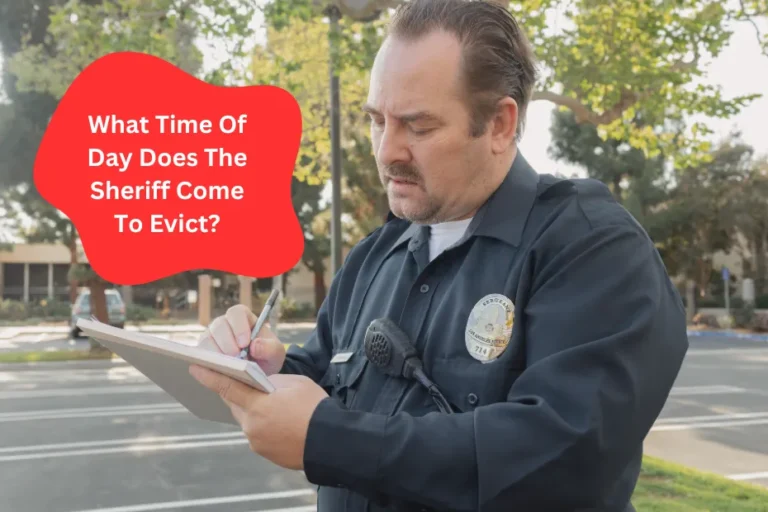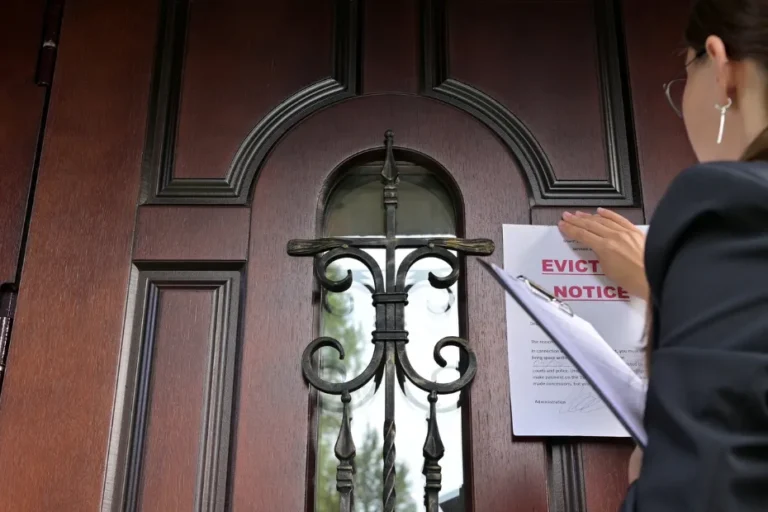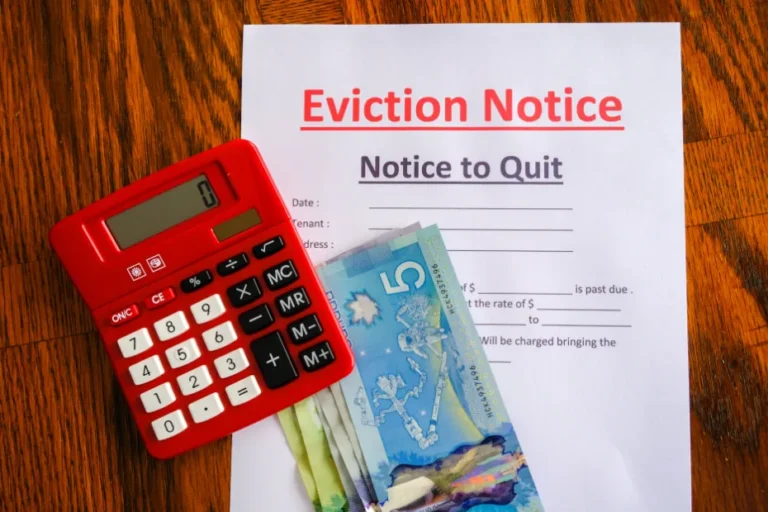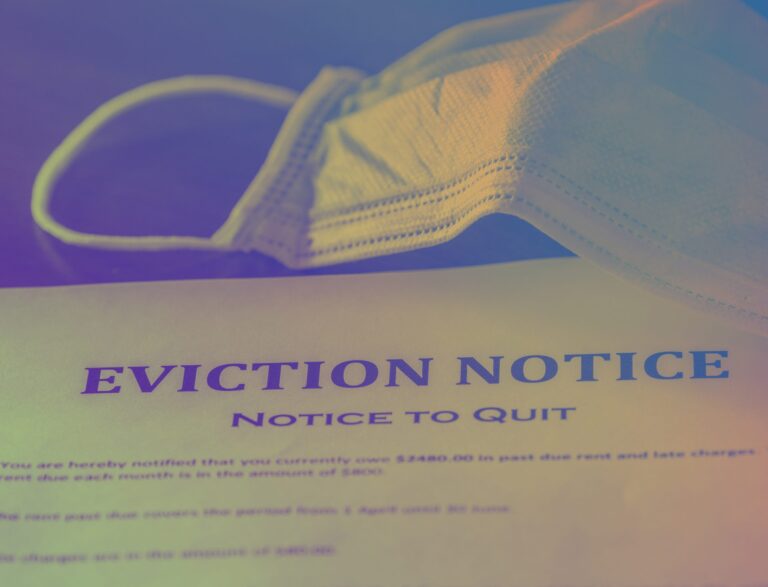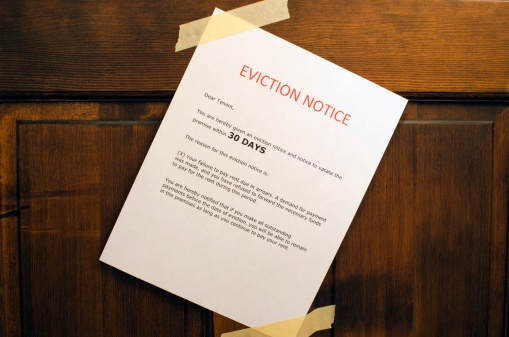Can The Bank Evict A Tenant In A Foreclosure? See The Truth!
Yes, the bank can evict a tenant in a foreclosure. The bank can’t proceed with eviction if you apply for a loan modification at least seven days before the foreclosure sale, but they can evict you once the process is finalized.
When a property goes into foreclosure, tenants’ rights become a concern. Tenants often wonder if they could be evicted when the property owner is in financial trouble. The bank can take over your rental property, leaving some tenants worrying about their living situation.
It’s crucial to understand the rights and protections in place for tenants in case of foreclosure. This article will explore whether the bank can evict a tenant in a foreclosure and the rights tenants have during the process.

1st Understand Foreclosure System
Foreclosure is a legal process in which a lender attempts to recover the outstanding balance of a loan from a borrower who has stopped making payments by forcing the sale of the asset used as the collateral for the loan.
In the context of tenant eviction, foreclosure raises questions about the rights of tenants when the property they renting are is being foreclosed upon.
What Is Foreclosure?
Foreclosure is the legal process through which a lender seeks to repossess a property from a borrower due to non-payment of a mortgage or loan. It involves the forced sale of the property to recover the outstanding debt that the borrower owes.
How Does Foreclosure Work?
Foreclosure typically involves several stages, including a notice of default, a pre-foreclosure period, a public auction, and the lender taking possession of the property.
The specific foreclosure process can vary based on state laws and the type of mortgage agreement.
Related Post: How Much Does It Cost to Fight an Eviction? Expert Tips
Rights Of A Tenant In Foreclosure
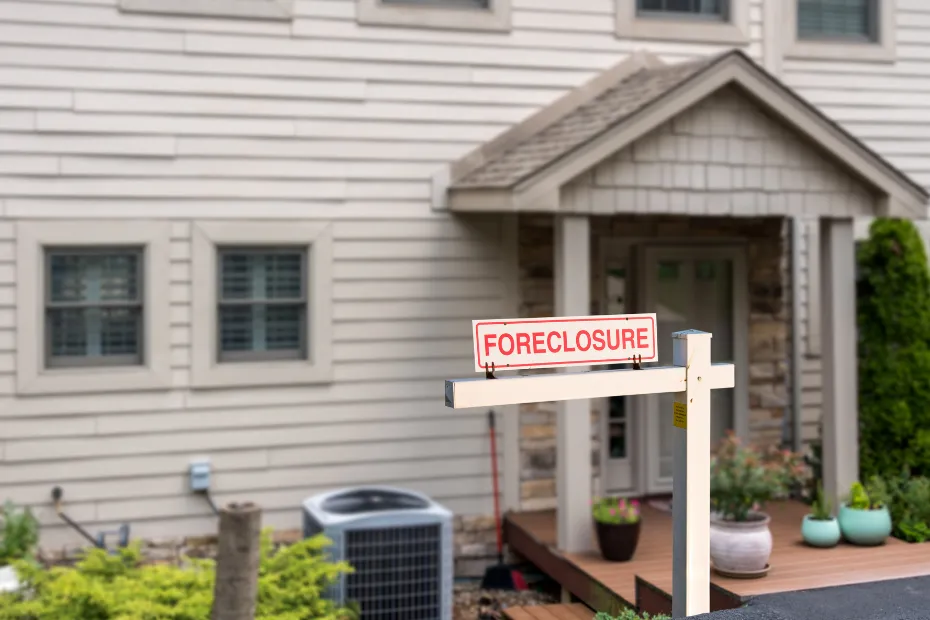
When it comes to the rights of a tenant in a foreclosure, it’s important to understand the legal protections in place and whether a tenant can be evicted during this process. Let’s delve into the specifics to shed light on these crucial questions.
Can A Tenant Be Evicted During Foreclosure?
In the event of a foreclosure, tenants often wonder about their security in terms of eviction. It’s a common concern, however, it’s imperative to know that a tenant can’t be abruptly evicted simply due to the property being foreclosed.
What Are The Legal Protections For Tenants?
There are legal safeguards in place to protect the rights of tenants during the foreclosure process.
For instance, the Protecting Tenants at Foreclosure Act (PTFA) offers certain protections, ensuring that tenants have sufficient time to find alternative housing arrangements. This act helps prevent immediate eviction and allows tenants to remain in the property for a reasonable period.
Moreover, tenants who have an active lease agreement are generally entitled to stay until the lease term expires. However, it’s essential to keep in mind that specific laws vary by state, so it’s crucial to understand the regulations and protections offered to tenants in your particular location.
Eviction Process In Foreclosure
When a property goes into foreclosure, one of the major concerns for tenants is whether the bank can evict them without a court order. Understanding the eviction process in foreclosure can help tenants navigate their rights and protect themselves during this challenging time.
Can The Bank Evict A Tenant Without A Court Order?
The answer to this question is no, the bank cannot evict a tenant without a court order. In a foreclosure situation, the bank must go through a legal process to initiate an eviction.
This means they must file an eviction lawsuit and obtain a judgment from the court before they can legally remove a tenant from the property.
The tenant has the right to defend themselves in court and present any legal arguments or evidence in their favor. Only after a court order is obtained can the bank proceed with the eviction.
What Is The Timeline For Eviction In Foreclosure?
The timeline for eviction in foreclosure varies depending on the specific circumstances and the state laws. However, there are general steps that are typically followed in the eviction process:
- The bank initiates the eviction process by filing an eviction lawsuit in court.
- The tenant is served with a notice of the lawsuit and given a specific timeframe to respond.
- If the tenant fails to respond or contest the eviction, the court may grant a default judgment in favor of the bank.
- If the tenant contests the eviction, a court hearing will be scheduled where both parties can present their case.
- If the court rules in favor of the bank, a judgment for eviction will be issued, specifying the date by which the tenant must vacate the property.
- If the tenant does not voluntarily leave the property by the specified date, the bank can request a writ of possession from the court, which allows law enforcement to physically remove the tenant from the property.
It’s important for tenants to be aware of their rights during the eviction process and seek legal assistance if needed. Understanding the timeline and following the appropriate legal procedures can help protect tenants from unlawful evictions in foreclosure situations.
Related Post: Can a Landlord Evict You After Paying Rent? The Truth
Appealing An Unfair Eviction Decision
If you feel that the eviction decision in a foreclosure case was unfair, you have the option to appeal and request a new trial with a different judge. The bank cannot evict a tenant without first obtaining a court order and filing an eviction.
Can A Tenant Appeal An Eviction Decision?
Yes, a tenant has the right to appeal an eviction decision if they believe it was unfair. Appeals can be made if the court ruling did not comply with the proper legal procedures or if there was an error in the judgment.
Tenants should consult with an attorney specialized in eviction cases to understand their rights and the chances of a successful appeal.
What Is The Process For Appealing?
The process for appealing an eviction decision may vary depending on the jurisdiction. However, generally, it involves the following steps:
Filing a Notice of Appeal: The tenant or their attorney must file a Notice of Appeal within a specified time frame after the eviction judgment. This notice informs the court that the tenant intends to request a review of the decision.
Preparing the Appeal Brief: The tenant’s attorney will need to prepare an appeal brief, detailing the reasons why the eviction decision should be overturned. This may include legal arguments, pointing out errors in the original judgment, or violations of the tenant’s rights.
Submitting the Appeal Brief: The appeal brief must be submitted to the court, along with any supporting documents or evidence. It is essential to ensure that all required filings are completed accurately and within the designated time limits.
Oral Argument: In some cases, the court may schedule an oral argument where both parties have the opportunity to present their case before a panel of judges. This allows the tenant’s attorney to further explain the reasons for the appeal and respond to any questions from the court.
Decision: After reviewing the appeal brief and considering any oral arguments, the court will issue its decision on whether to uphold the eviction or grant the appeal. The court’s decision is final in most cases, although there may be further options for appeal in certain circumstances.
Bankruptcy And Its Impact On Foreclosure
During foreclosure, the bank cannot evict a tenant without a court order, providing legal protection to the occupant.
If the tenant applies for a loan modification or alternate assistance, the bank must halt the eviction process, offering a lifeline during financial hardship.
Understanding tenant rights in foreclosure can help navigate this challenging situation.
Can Filing For Bankruptcy Stop Foreclosure?
One question that often arises when facing foreclosure is whether filing for bankruptcy can put a stop to the process. The answer, in short, is that yes, filing for bankruptcy can provide temporary relief and halt the foreclosure proceedings.
When an individual files for bankruptcy, an automatic stay is put into effect, creating a legal barrier between the debtor and the lender.
This means that the bank cannot continue with the foreclosure process until the bankruptcy case is resolved or the stay is lifted. Therefore, filing for bankruptcy can buy the tenant some time to explore other options and potentially avoid eviction.
How Does Bankruptcy Affect The Eviction Process?
Once a foreclosure has taken place and the property is sold, the new owner, typically the bank, may wish to proceed with the eviction of any remaining tenants. However, if the tenant has filed for bankruptcy, the eviction process may become more complex.
The automatic stay that is put into effect upon filing for bankruptcy also applies to eviction proceedings. This means that the bank cannot proceed with the eviction until the bankruptcy case is resolved or the stay is lifted.
Final Thoughts
While the bank has the power to evict a tenant in a foreclosure, it cannot do so without following the proper legal procedures.
The tenant has certain rights and protections, such as being given notice and having the opportunity to appeal the eviction decision.
It is important for tenants to understand their rights and seek legal assistance if needed to ensure a fair and just process.

